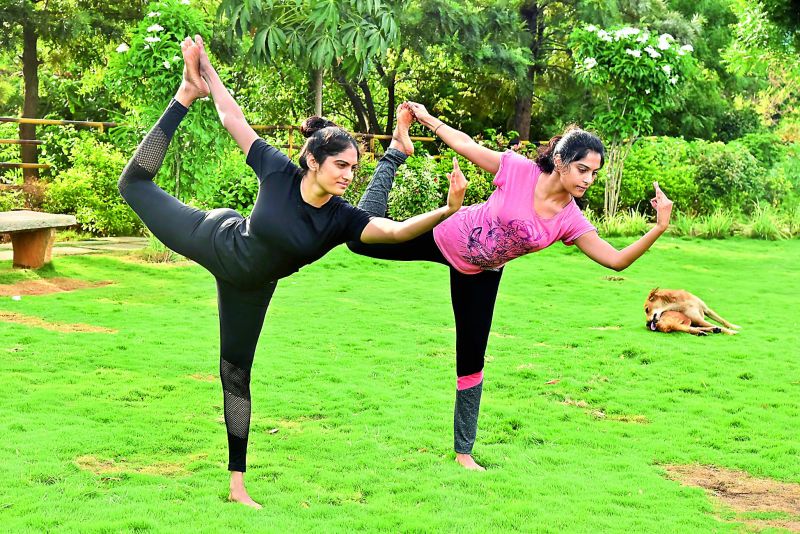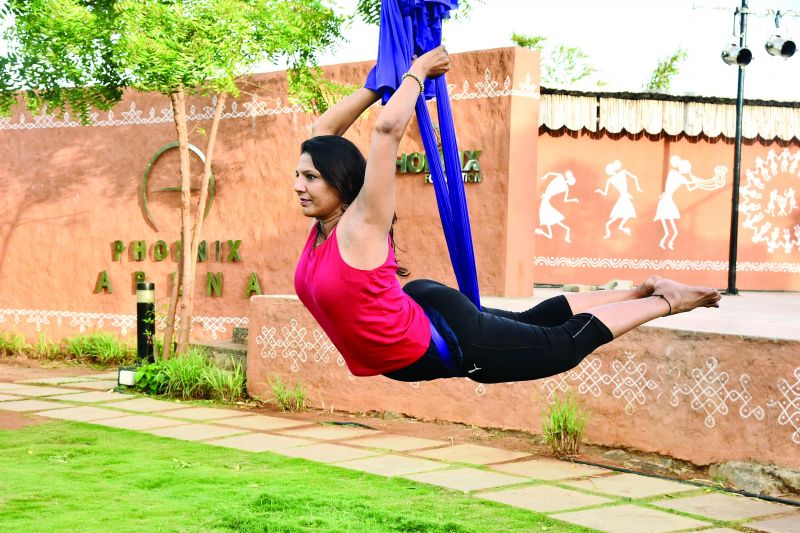The Breath of Life

If you are dazzled by the mean moves, age defying asanas and the enviable headstands your Facebook friends post regularly on their pages to make you turn green, first understand what it takes to pull off those amazing moves.
“Breathe right,” says acclaimed yoga expert Payal Gidwani (who tutors celebrities including Kareena Kapoor and Saif Ali Khan, and has also authored books on yoga such as Own the Bumo (yoga for pregnant women) and Body Goddess (yoga for shaping up).
“In yoga, breathing correctly is very essential as the asanas are paired with the breath to create a synchronised effect. You need to perfectly synchronise the inhalation and exhalation to maximise the benefits of the asanas in your practice of yoga. Often people equate yoga to a form of aggressive aerobic exercise for weight loss: this is an incorrect perspective. Yoga is a lifestyle change, an overall wellness programme which has to be incorporated for life,” she explains.
Breathing from the abdomen as opposed to breathing only from your diaphragm is the biggest marker for correct breathing techniques. So how best can you make breathing work for you while performing the multitude of asanas?

Explains Deepti Dadlani, an exponent of Hatha Yoga and Sivananda style sessions (that bring in pranayamas and asanas focussing especially on spine alignment and mindfulness), “Simply put, you need to exhale more than you inhale. Start out with smaller breaths, and then work on the system of exhaling double of what you inhale. Slowly, this becomes an involuntary breathing style. This is the ideal way of maximising the benefits of yoga.”
She adds, “When you breathe correctly like this, then the yoga asanas that you practice gradually balance your mind: achieving the treasured balance between the functioning of both the left and right side of your brain. This sharpens your power to be able to focus and betters memory as well.”
So the next time you roll out your yoga mat, make a mental note to get in sync with a correct breathing pattern and then experience the benefits of yoga course through your life.
Golden Guidelines
Fine-tune your senses and work better on your muscles with these tips from the masters themselves.

It takes years to perfect your posture in yoga. They say that if you’re able to hold an asana for 12 minutes, you’re nearly there. So while you may already be shaving inches and kilos off your body by working up a sweat with yoga, there’s more you can do to maximise your output.
Start slow
Yoga expert Payal Gidwani says that it’s best not to rush into an intense programme. “If you are new to yoga, start with a traditional yoga programme that’s conducted three times a week. Unless you are very obese, you should be able to practice almost all yoga asanas. Initially, you may find it difficult to stretch, but a good yoga instructor will be able to guide you through it. Weight-loss will follow, gradually,” she says.
Be realistic
Yoga practitioner Deepti Dadlani suggests setting realistic goals. “Understand that yoga is intended to improve your stamina, flexibility and energy levels. Any other benefits that it offers are spin-offs,” she says, adding, “Don’t perform asanas as if you’re in a race. It is better to do three repetitions with the proper posture, rather than doing 30 reps without the correct foot, hand and spine placement.”
Build your strength
“Modern-day power yoga is a combination of pilates, aerobics, and core-strengthening exercises. Work up the intensity of your workout slowly, and heed your body’s signals. Focus on achieving the correct body posture and breathing patterns. This is possible if you slowly build your mental strength as you slip into each new asana,” says yoga practitioner Arpita Shanghvi.
Abide by these golden rules and they’ll hold you in good stead when you sign up for that yoga class – be it aerial yoga, power yoga, doga (yoga with your dog), restorative yoga, or chair yoga.

